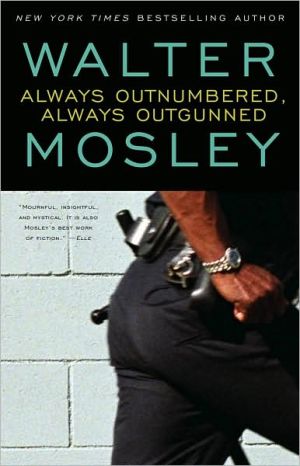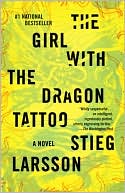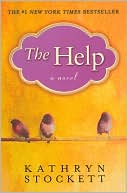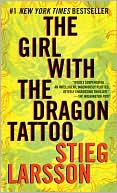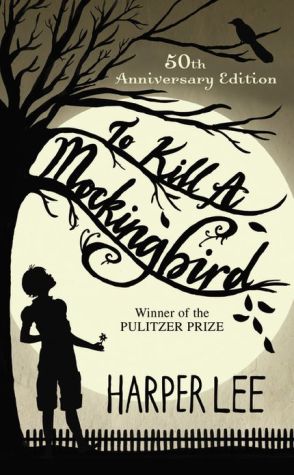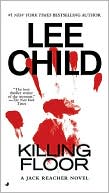Black Betty (Easy Rawlins Series #4)
1961: For most black Americans, these were times of hope. For former P.I. Easy Rawlins, Los Angeles's mean streets were never meaner...or more deadly. Ordinarily, Easy would have thrown the two bills in the sleazy shamus' face — the white man who wanted him to find the notorious Black Betty, an ebony siren whose talent for all things rich and male took her from Houston's Fifth Ward to Beverly Hills. There was too much Easy wasn't being told, but he couldn't resist the prospect of seeing Betty...
Search in google:
Los Angeles, 1961. Kennedy is in the White House and King is marching down South. It's a new day for many blacks in America - but not for Easy Rawlins.Easy's small real estate empire is in trouble and he is facing bankruptcy when Saul Lynx, an oily white private eye, offers him $200 to track down on Elizabeth Eady, a.k.a. "Black Betty." The sensuous Betty was a housekeeper for an immensely wealthy Beverly Hills family - but now has mysteriously disappeared.Easy takes the job, but he also has to deal with his murderous sidekick Mouse, who's just been released from Chino prison. Mouse was sent up for manslaughter, and he wants Easy to help him find the ones who gave him up to the police.Finding Betty seems a simple enough task, but nothing about this woman is as simple as it appears to be. Easy soon finds out her trail is paved with blood - and he might be the next victim of her deadly charms.Publishers WeeklyMosley's Easy Rawlins series continues when the down-and-out PI is hired to track down the notorious woman called Black Betty in early-1960s Los Angeles. (July)
Chapter 1\ I awoke with a start in almost complete darkness. I didn't know where I was. The mattress was too soft. I reached over to get my watch but the night table wasn't there. I almost fell off the lawn chair onto the porch. Then I remembered how hot it was in the house. The kids, Jesus and Feather, had taken the only working fan to blow air from the window into Jesus's room. I'd come outside to the screened-in porch at two A.M. after waking up to find myself sweating in the bed.\ I sat up trying to throw off the nightmare. It had been almost five years, but Bruno died in my dreams at least once a month — more often recently. I'll never forget him being nailed to the wall by my best friend's gun.\ I tried to think of better things. About our new young Irish president and Martin Luther King; about how the world was changing and a black man in America had the chance to be a man for the first time in hundreds of years. But that same world was being rocked almost daily by underground nuclear explosions and the threat of war.\ Across town an old friend of mine, Martin Smith, lay dying. He'd been the closest thing to a teacher that I ever had. I knew that I had to go see him, to say goodbye, but I kept putting it off.\ And through it all blew that hot September wind. It wouldn't let me rest. It just got hotter and hotter while my temper wore thin.\ I wanted to feel better but all I had was the certainty that the world had passed me by — leaving me and my kind dead or making death in dark causeways.\ A strip of dawn light showed above the houses across the street. A better day might have been coming, for some people — but not for everyone. Bruno was in his grave almost five years now, while Mouse languished in the state prison at Chino for manslaughter. I was in a kind of prison too. A prison of guilt, a prison of my mind.\ "Mr. Rawlins?" a voice said.\ My hand went straight for the pistol in the night-table drawer again. But I wasn't in my bedroom. I was naked, not even under a sheet, outside in the dark. I grabbed a ceramic ashtray that Jesus had made me at summer camp.\ "Whoisit?" I tried to sound calm. The silhouette in the screened doorway was a man — somewhere between five foot six and six foot five. With my free hand I took the sheet from the floor and held it to my crotch.\ "Saul Lynx, Mr. Rawlins." A white man. "Can you talk?"\ "Huh? What?" I clutched the misshapen slab of clay so hard that it cracked in my hand.\ "I know it's early," the white man said. "But it's important that I speak with you. I got your name last night, but by the time I got a chance to come over it was too late. I was going to wait outside until later, but when I came up to check the address I heard you talking in your sleep. You see, I have to talk to you this morning."\ "Then why don't you get-ass away from here and call me in the mornin'?" I could feel the strength in my arm build to the point where I could have hurled the ashtray through the screen. If he had touched the latch on the door he would have been a dead man.\ But instead of taking any chances he said, "I've come to offer you a job. But you've got to start today — this morning." Then he said, "Can we turn on a light or something?"\ I didn't want him to see me with no clothes on. It was like I was still in a dream, as if I were vulnerable if someone could see my skin. I wanted to linger in those shadows, but I'd learned that you can't hide in your own house — if somebody knows where you live you've got to stand up.\ I wrapped the sheet around me like an African robe and reached inside the front door to switch on the porch light. Mr. Lynx was still hidden in the faint light beyond my screen.\ "May I come in?" he asked.\ "Come on then."\ He was a smallish man in a light brown cotton suit and a loose dark brown tie. His nose was the only big thing on him — protruding and somehow shapeless. If you'd forgotten his name you would have said, "You know, the guy with the nose." His cap was brown. He had on a white shirt to go with his pale skin. His eyes were brilliant green.\ Saul Lynx smiled and bobbed his head, but I didn't take his hand.\ "You won't be needing that." He was looking down at the ashtray. "I don't blame you for sleeping outside on a night like this. In the summers back in the Bronx when I was a boy I spent more time on the fire escape than I did in the apartment."\ "What do you want, man?" I didn't have patience for his small talk.\ "Like I say," he answered, unperturbed, "I've got a job for you. There's a woman missing and it's my client's desire to find her quickly."\ The shadow of night was lifting from Genesee Avenue. I could make out the shapes of large carob trees across the street and the neat little lawns of my neighbors.\ "Can we sit down?" Saul Lynx wanted to know.\ "Say what you got to say, man, and then get outta here." I had children in the house and didn't want this stranger too comfortable in their home.\ Saul Lynx had a smile that was just about as sincere as the kind of grin the undertaker puts on a corpse. "Have you ever heard of a woman named Elizabeth Eady?" he asked.\ Her name struck a dark chord at the back of my mind. It fit with the humid September heat — and with my dreams.\ "She's lived in L.A. for almost twenty-five years, but she's from Houston originally," the little man was saying. "From down in your old neighborhood, I think. The only picture I have of her is this one." Lynx handed me an old brittle photograph. Its colors were rose-brown and tan instead of black and white. It wasn't a posed portrait, but a kind of snapshot. A young woman on the front porch of a small house. She was smiling at the time, leaning awkwardly against the doorjamb. She was tall and big-boned and very dark, even the rose coloring couldn't hide Betty's blackness. Her mouth was open as if she were smiling and flirting with the photographer. It brought a sense of intimacy that few amateur photographs have. Intimacy but not warmth. Black Betty wasn't your warm sort of homemaking girl.\ Betty was a great shark of a woman. Men died in her wake.\ If you heard that a friend of yours was courting Betty you could start crying then, because he was bound to come to harm. She had something about her that drove men wild. And she wasn't stingy with her charms. If a man could afford her supper, and her drink, she was happy to be with him. She'd go out with him on Monday, Tuesday, Wednesday, and Thursday nights — all night. Betty wasn't the kind who sat home, so if Friday came and his pockets were empty — Betty was gone. Because when the sun went down, Betty and Marlon (Marlon, that was Betty's fancy half brother), they hit the streets. And if one man couldn't pay, another one was happy to take his place.\ Back then there weren't too many of your colored men who could afford a steady diet of Betty. Many a night, yesterday's boyfriend went up against tonight's man. Betty could draw blood three nights in a week, and if it ever bothered her she never let it show.\ I had seen her sashaying down the wooden sidewalks of Houston's Fifth Ward. I was a raggedy twelve-year-old and she was more woman than I had ever seen in one place. She wore black lace, gloves, and fur and smelled so good that I forgot who I was. It was out in front of a bar called Corcheran's on Blanford Street. I guess I was looking pretty hard, my nostrils were probably flared out too.\ "What you lookin' at, boy?" she asked me.\ "You, ma'am."\ "You like what you see?"\ I had to swallow before saying, "Uh-huh, yes'm. You 'bout the prettiest woman I ever seen."\ "About?"\ I was crushed. I should have said the prettiest. She was the prettiest. I had ruined my chances of her ever talking to me again.\ "Come on, honey," her date said.\ But instead of listening to him Betty came over and kissed me — right on the lips. She pushed her tongue out but I was too slow to open my own mouth. When she pulled back from me I fell on the ground from leaning into the embrace that didn't come.\ They all laughed at me, all the men standing outside. But Betty didn't laugh. She was moved by her power over me. I would have fallen down for her any day. I would have jumped out of a window for her kiss.\ "Do you know her, Mr. Rawlins?" Saul Lynx asked.\ Dawn had come while I studied the picture. A car drove by and tossed a newspaper onto my lawn and the lawn next door. Almost immediately a spidery white woman came out of her house to retrieve her paper. Mrs. Horn was insomniac and impatient. She'd probably been waiting for hours just to get the news.\ "I don't remember her," I said.\ "Well..." He took a long time with the word as if to say that he didn't know whether to believe me or not. "That doesn't matter, not really. You're known for finding people in the colored part of town. That's why we need you."\ "Who's we?"\ "I'm the only one you need to be concerned with."\ "What's she done?"\ "Nothing as far as I know. She worked for a woman almost the whole time she's been up here. But something happened. Miss Eady quit and left her job and now her boss wants her to come on back." Saul Lynx smiled and caressed his nose like it was a favored pet. "She didn't leave a forwarding address and there's no Elizabeth Eady in the book."\ "Who she work for?"\ "I'm not at liberty to say."\ "Uh-huh. And how much you payin' t'find her?"\ "Two hundred dollars now and another two hundred when you find her." He pointed his baby finger at me. "But the job has got to be done quickly. From what I understand, the woman who's paying is very upset and wants to find Miss Eady soon."\ "From what you understand?"\ "Well, you see," he said, almost apologetically, "I haven't actually met the woman. She doesn't deal with dicks. It's her lawyer who hired me." He took a small fold of bills from his pants pocket and handed it in my general direction.\ I had the ashtray in one hand and the picture in the other.\ "Two hundred dollars up front," he said.\ It was more than I had in the bank. At one time I was flush with the income from apartment buildings I owned. I'd bought them with a windfall I'd come upon in 1948. But since then I'd stretched myself pretty thin trying to make it in the real estate game. I was almost bankrupt. The house I lived in was rented. We ate beans and rice for dinner three nights a week.\ I put down the ashtray and took the bills. They were damp from being in his pants.\ "I might look," I said tentatively. "But I'll want to talk to this lawyer guy myself before I give you anything I find. What you say his name was?"\ "We'll talk about that when you've got something. I'll let him know that you'll be wanting to see to him, though." He couldn't have cared less about what I wanted. "How can he get in touch with you if he wants to talk?"\ I told him my number and he nodded. Mr. Lynx was the kind of man who didn't write things down.\ "How did you find me, Mr. Lynx? My address ain't in no book."\ "You're famous, Mr. Rawlins." He took a cracked leather wallet from his back pocket. From this he produced a creased and soiled business card. It was damp too. It had a phone number and a Venice Beach address printed in black letters that had run slightly with the moisture. There wasn't a name, though.\ "That's L-Y-N-X," he said. "Call me when you find something. And call me soon."\ "How do you know that I won't just take this money and say you owed it to me for somethin'?"\ Saul Lynx looked me in the eye and stopped his placid smiling. "I might be wrong, but I bet that you're the kind of man who does what he says, Mr. Rawlins. Anyway, there's still two hundred dollars to be made."\ "Well, maybe so, but how do you expect me to find this one woman outta two and a half million people? You must have somethin' t'tell me about her." I already knew how to go about looking for Betty, but I wanted to know what that white man knew.\ And he saw what I was about. A smile that bordered on respect grazed his lips. Then he shook his head. "Sorry, Mr. Rawlins, but all I know is that she has friends down in the Negro community. Maybe somebody you know will recognize her from the picture."\ I would have given him the money back but I had an idea of how he found me — and an itch to see Betty when I was a man.\ "I'll be talkin' to ya," I said.\ Lynx touched his forehead in a mock-friendly salute.\ "Don't forget," he said. "I have to know about this soon."\ He smiled and walked out. I watched him get into an especially small and tinny brown car. It was something foreign, I never knew what. As he drove off Mrs. Horn came out — just curious, I suppose. When she saw me standing outside dressed in my toga her white face paled even more. I don't know what she thought. I smiled and called to her but she was already hurrying back into her house.\ I picked up my own paper and read the headlines. Russia had just set off their third nuclear blast that month.\ Copyright © 1994 by Walter Mosley
\ Publishers Weekly - Publisher's Weekly\ Mosley's Easy Rawlins series continues when the down-and-out PI is hired to track down the notorious woman called Black Betty in early-1960s Los Angeles. (July)\ \ \ \ \ NewsweekElegantly crafted...Mosley's best book yet.\ \ \ \ \ San Diego Union TribunePerceptive and poignant, humorous and horrifying...a rare blend of top-flight entertainment and incisive social comment.\ \ \ \ \ \ \ St. Louis Post-DispatchMarvelous storytelling.\ \ \ \ \ \ \ Library JournalMosley's distinctive black investigator, Easy Rawlins, has moved from Watts to West L.A. with his two adopted children, but trouble still follows him. Hired to locate a sultry female acquaintance from his early days in Houston, Easy searches for her gambler brother and questions her Beverly Hills employer, unwittingly provoking racist police harassment. Meanwhile, friend Raymond (``Mouse'') has been released from prison and vows revenge on the snitch who put him there. Mosley, as usual, describes a historically correct ethos in deft, literate prose.\ \ \ \ \ Library JournalMosley's distinctive black investigator, Easy Rawlins, has moved from Watts to West L.A. with his two adopted children, but trouble still follows him. Hired to locate a sultry female acquaintance from his early days in Houston, Easy searches for her gambler brother and questions her Beverly Hills employer, unwittingly provoking racist police harassment. Meanwhile, friend Raymond (``Mouse'') has been released from prison and vows revenge on the snitch who put him there. Mosley, as usual, describes a historically correct ethos in deft, literate prose.\ \ \ \ \ Sacred FireBlack Betty is the fourth, and the strongest, installment in the Easy Rawlins mystery series. The time is the late 1940s, the place is Los Angeles, and the living is hard. Ezekial "Easy" Rawlins, a former soldier who is still hurting from the departure of his wife to Mississippi with another man, is facing pressure from his real estate dealings and from the challenges of raising two children. Desperate for work, he takes on an offer to find a woman, Elizabeth Eady, a.k.a. Black Betty, who has vanished into thin air. Her wealthy employer wants her back, and so the search begins. Add Mouse, Easy's sidekick, and murder and mayhem soon follow.\ Mosley writes mystery, yes; but he also suffuses his stories with a deeply intimate knowledge of the black community and its struggles. This passage from Black Betty illustrates Mosley's skill at re-creating the surface and depth of life in the middle-class black communities of Los Angeles while at the same time addressing, in his two-fisted way, the existential issues that dog all African Americans:\ On the bus there were mainly old people and young mothers and teenagers coming in late to school. Most of them were black people. Dark-skinned with generous features. Women with eyes so deep that most men can never know them. Women like Betty who'd lost too much to be silly or kind. And there were the children, like Spider and Terry T once were, with futures so bleak it could make you cry just to hear them laugh. Because behind the music of their laughing you knew there was the rattle of chains. Chains we wore for no crime; chains we wore for so long that they melded with our bones. We all carry them but nobody can see it—not even most of us. All the way home I thought about freedom coming for us at last. But what about all those centuries in chains? Where do they go when you get free?\ All that and a mystery, too.\ Mosley continues a tradition of African American detective fiction that uses this genre to explore issues of empowerment, a tradition begun by novelists like Chester Himes (If He Hollers Let Him Go and A Rage in Harlem), W. Adolphe Roberts (The Haunting Hand, 1926), and Rudolph Fisher (The Conjure Man Dies, 1932). Other books in the acclaimed Easy Rawlins series include Gone Fishing, Devil in a Blue Dress, A Little Yellow Dog, A Red Death, and White Butterfly.\ \ \ \ \ From Barnes & NobleIt's 1961, and Easy Rawlins's real estate empire is deep in the hole. Desperate for cash, Easy accepts money from the oily white detective Saul Lynx to track down a beautiful black woman whose raw sensuality has left a trail of chaos and mayhem in her wake.\ \
